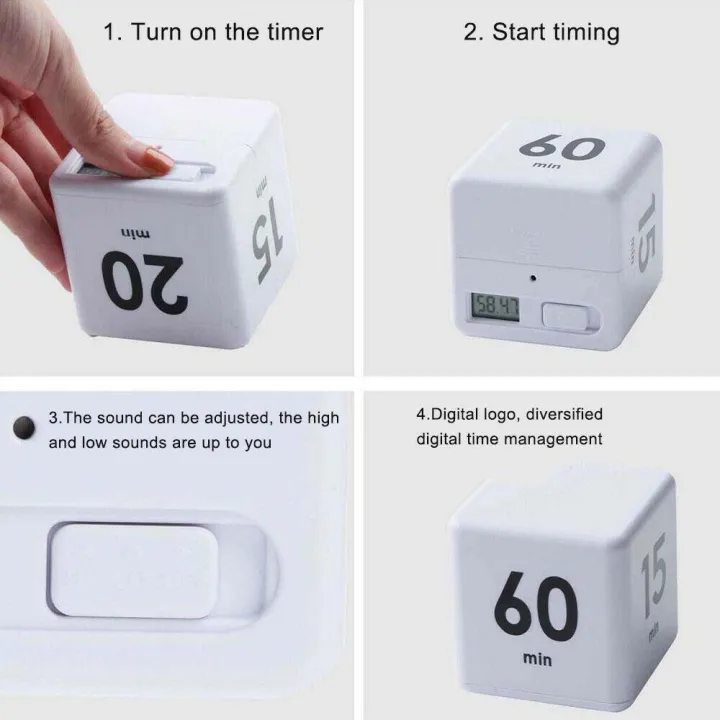Table of Contents
Introduction: Why in the Philippines, Memorize Fast Matters
In the Philippines, a strong emphasis on academic performance puts students under constant pressure to excel. While understanding concepts is key, effective memorization plays a crucial role in retaining information for exams and beyond. Memorizing faster can give you a competitive edge and boost your confidence. On this article we will give you methods on how you will effectively memorize fast.
Top 7 Techniques to Memorize Fast:
- Chunking and Spaced Repetition: Break down large chunks of information into smaller, manageable units. Review them at increasing intervals (e.g., 10 minutes, 1 hour, 1 day) to solidify them in your long-term memory. Spaced repetition is a scientifically proven method that optimizes memory retention by strategically spacing out review sessions. Instead of cramming all at once or pag aralan mo lahat agad, spaced repetition involves revisiting information at increasing intervals over time. Cramming is essentially trying to stuff a load of information into your short-term memory in time for an upcoming exam. Here’s how you can apply it to your Civil Service Exam preparation:
- Numerical Ability:
- Concept: When studying mathematical concepts, break down topics into smaller chunks. For instance, focus on specific arithmetic operations (addition, subtraction, multiplication, division) or algebraic equations.
- Sample Application:
- Learn the order of operations (PEMDAS/BODMAS) thoroughly.
- Practice solving percentage problems using spaced repetition. Review them after 1 day, then 3 days, and finally after a week.
- Memorize essential formulas (e.g., compound interest, profit and loss) using spaced intervals.
- Verbal Ability:
- Concept: Verbal ability includes grammar, vocabulary, and comprehension. Break down these components and tackle them separately.
- Sample Application:
- Grammar:
- Learn common rules (subject-verb agreement, tenses, etc.) and review them periodically.
- Practice identifying sentence errors using spaced repetition.
- Vocabulary:
- Create flashcards for new words.
- Review them daily initially, then gradually extend the intervals (e.g., every 3 days, then weekly).
- Comprehension:
- Practice reading passages and answering questions.
- Revisit the same passages after a few days to reinforce understanding.
- Grammar:
- Analytical Ability (Professional Level Only):
- Concept: Analytical ability involves critical thinking, problem-solving, and logical reasoning.
- Sample Application:
- Logical Reasoning:
- Understand different types of logical arguments (deductive, inductive, etc.).
- Review sample questions related to syllogisms, analogies, and series completion.
- Problem-Solving:
- Solve puzzles and brain teasers.
- Revisit them periodically to reinforce problem-solving techniques.
- Logical Reasoning:
- General Information:
- Concept: General information covers a wide range of topics. Use spaced repetition to retain facts and details.
- Sample Application:
- Current Affairs:
- Stay updated with recent news and events.
- Review key facts about significant developments in the Philippines.
- History and Culture:
- Memorize important dates, historical figures, and cultural landmarks.
- Space out your review sessions to reinforce long-term retention.
- Current Affairs:
- Numerical Ability:
- The Pomodoro Technique: Work in focused 25-minute intervals with short breaks in between. This maintains focus without overwhelming your brain. This is one of the best method to memorize fast/
- Promodoro Timer: Set your timer for 25 minutes, focus like a laser, and reward yourself with short breaks. The [Product Name] timer is your sleek and stylish companion for focused learning and academic success. ✨ Get it HERE. It is just very cheap so it wont hurt your wallet and it will effectively increase your focus and time management.

- Combine with music: Set a 25-minute timer and listen to focus-enhancing music during work periods. Take short breaks with upbeat music to refresh your mind.
- Study with friends: Take turns explaining concepts to each other in 25-minute intervals. This keeps you engaged and helps solidify understanding.
- Use productivity apps: Download apps like Forest or Focus Keeper to visually track your progress and stay motivated during Pomodoro sessions.
- Promodoro Timer: Set your timer for 25 minutes, focus like a laser, and reward yourself with short breaks. The [Product Name] timer is your sleek and stylish companion for focused learning and academic success. ✨ Get it HERE. It is just very cheap so it wont hurt your wallet and it will effectively increase your focus and time management.
- Mnemonic Devices and Rhymes: Create catchy rhymes or stories linking concepts together. Filipinos are known for their creativity, so get creative!
- Filipino Phrases: Create rhymes or puns using Filipino slang or figures of speech to link concepts. For example, “Ang tulang balang ay matalim at mabilis, tulad ng pag-solve mo sa math problems na matigas!” (The balang bird is sharp and quick, just like you solving tough math problems!)
-
- Mnemonic Devices and Rhymes: Filipino Phrases to the Rescue!
- Filipino phrases are bursting with potential for clever mnemonics and catchy rhymes, making memorization a fun and engaging experience. Here are some examples to inspire you:
- History:
- “Rebolusyong Tejeros: Kasunduan sa ilalim ng puno ng mangga!” (Tejeros Revolution: Agreement under the mango tree!) – This mnemonic uses the iconic image of the Tejeros Convention held beneath a mango tree to remember the key event in Philippine history.
- “Cry of Balintawak: Sigaw ng kalayaan sa Sangguniang Bayan!” (Cry of Balintawak: Cry for freedom in the town hall!) – This rhyme connects the historical event with its location, making it easier to recall.
- Science:
- “Water Cycle: Akyat, singaw, ulan, balik sa lupa!” (Water Cycle: Up, vapor, rain, back to the earth!) – This chant breaks down the water cycle into simple steps with a catchy rhythm.
- “Photosynthesis: Halaman ay gumagawa ng pagkain, gamit ang araw at hangin!” (Photosynthesis: Plants make food, using the sun and air!) – This rhyme highlights the key elements of photosynthesis in a fun way.
- Filipino Literature:
- “Florante at Laura: Pag-ibig na hindi matalunton, sa kagubatan ng kabiguan!” (Florante at Laura: Love lost, in the forest of confusion!) – This rhyme captures the essence of the epic poem’s plot and setting.
- “Noli Me Tangere: Krusada ng isang doctor, para sa bayan at reporma!” (Noli Me Tangere: A doctor’s crusade, for the country and reform!) – This rhyme summarizes the main character’s mission in Rizal’s famous novel.
- History:
- Bonus Tip: Get creative with wordplay and puns! For example, to remember the Philippine national bird, the “talon” (eagle), you could use the phrase “May talong ka ba sa kasaysayan ng Pilipinas?” (Do you have claws in Philippine history?), linking the bird’s sharp talons to its role in national symbols.
- Remember, the best mnemonics are those that are personal and meaningful to you. So, don’t be afraid to experiment and have fun with it!
- Acronyms and Initialisms: Invent catchy acronyms or initialisms for lists of facts or steps in a process. For example, “PEMDAS” for order of operations in math.
- Visual Associations: Use vivid imagery to represent abstract concepts. For example, imagine a bright sun shining on a specific term to help recall its definition.
- Visual Aids and Mind Maps: Use diagrams, charts, and colorful mind maps to engage your visual memory and make connections between ideas.
- Filipino Symbols and Art: Use traditional Filipino symbols and art forms to create visual representations of key concepts. For example, draw a sarimanok (mythical bird) holding a book to represent the importance of education.
- Color-coding: Use different colors to highlight important points, categorize information, or create visual connections between concepts.
- Interactive Mind Maps: Create online mind maps using tools like Miro or Coggle to collaborate with friends and visually organize your study materials.
- Self-Testing and Active Recall: Don’t just passively read. Test yourself with flashcards, practice writing key points from memory, or explain concepts to a friend.
- Create quizzes and games: Turn your notes into quizzes or interactive games to test your knowledge in a fun and engaging way. Play them with friends or challenge yourself to beat your own score.
- Teach someone else: Explain concepts to a friend or family member. This forces you to actively recall information and identify any gaps in your understanding.
- Record yourself explaining: Use your phone or a voice recorder to record yourself explaining key points. Listen back to identify areas that need improvement.
- The Power of Sleep: When you sleep, your brain consolidates memories. Aim for 7-8 hours of quality sleep before an exam.
- Stress Management and Meditation: Stress can hinder memory formation. Practice relaxation techniques like deep breathing or meditation to keep your mind calm and focused.
Pinoy Power-Up: Food and Health Tips for Optimal Memory
Brain-Boosting Filipino Superfoods that will help you memorize fast:

- Ampalaya: This bitter gourd is rich in antioxidants and vitamins, which are essential for brain health.
- Alugbati: This leafy green vegetable is high in iron, which helps carry oxygen to the brain.
- Adobo (in moderation!): The vinegar and garlic in adobo are thought to have cognitive benefits, but remember to enjoy it as part of a balanced diet.
Hydration for Sharp Thinking:

- Drinking plenty of water throughout the day keeps your brain hydrated and functioning optimally. Aim for 8 glasses per day.
Exercise for Enhanced Cognitive Function:

- Regular physical activity increases blood flow to the brain and promotes the growth of brain cells. Aim for 30 minutes of moderate exercise most days of the week.
Sleep Hygiene for Optimal Recall:

- Create a consistent sleep schedule, including a relaxing bedtime routine and avoiding screens before bed. Darkness triggers the release of melatonin, which helps you fall asleep and consolidate memories.
FAQs: Memory Myths and Filipino Study Habits Demystified
Myth: Coffee is a magic memory potion.
While coffee can improve alertness and focus, it’s not a sustainable solution for long-term memory improvement. Excessive caffeine intake can actually hinder sleep and learning.
Myth: Cramming is the key to exam success.
Cramming might get you through an exam in the short term, but it doesn’t lead to long-term retention. The techniques mentioned above are much more effective for sustainable learning and success.
Fact: Filipinos learn best by doing and collaborating.
Filipino culture emphasizes hands-on learning and group work. Utilize these strengths by incorporating active learning techniques


